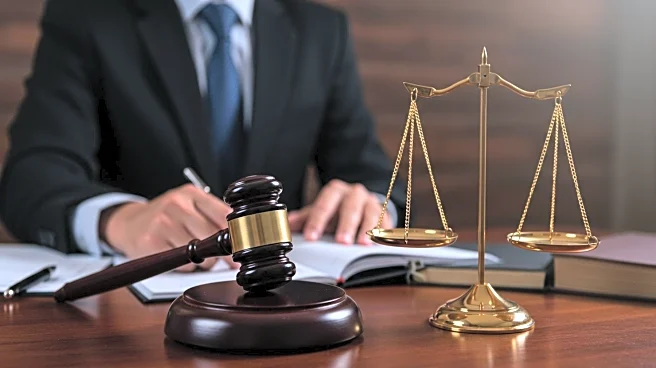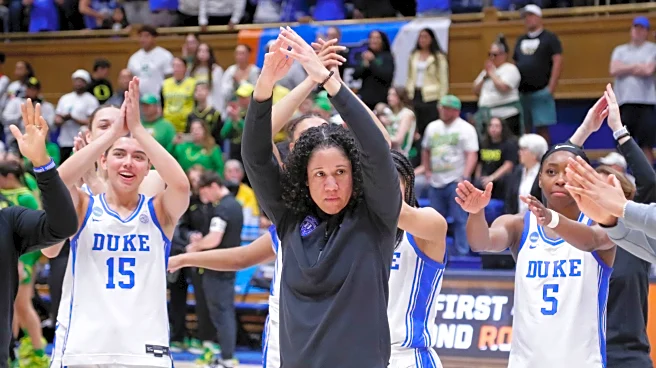What is the story about?
What's Happening?
A federal court in California is currently hearing a case that challenges President Trump's deployment of National Guard troops to Los Angeles during recent protests. The trial, which began in San Francisco, centers on the argument that the troops were illegally engaged in civilian law enforcement. California Deputy Attorney General Meghan Strong has argued that the military's involvement with ICE and other law enforcement agencies in Southern California is so extensive that they are indistinguishable from civilian police forces. The case is part of a broader legal battle over the administration's use of federal forces in domestic law enforcement, with similar deployments being considered for other cities like Baltimore and Oakland.
Why It's Important?
The outcome of this trial could have significant implications for the balance of power between federal and state authorities, particularly concerning the use of military forces in civilian contexts. If the court rules against the administration, it could limit the president's ability to deploy troops domestically, impacting how future protests and civil unrest are managed. This case also highlights ongoing tensions between the Trump administration and states like California, which have frequently opposed federal policies on immigration and law enforcement. A ruling in favor of California could embolden other states to challenge federal authority in similar contexts.
What's Next?
The trial is expected to continue with further testimonies and legal arguments. Depending on the outcome, the case may be appealed, potentially reaching higher courts, including the Supreme Court. The administration's response to any unfavorable ruling will be closely watched, as it could set a precedent for future federal interventions in state matters. Additionally, the decision may influence public opinion and political discourse around the use of military forces in domestic law enforcement.
Beyond the Headlines
This legal battle raises questions about the constitutional limits of presidential power and the role of the military in civilian affairs. It also touches on broader issues of racial profiling and civil liberties, as the deployment of troops has been linked to aggressive immigration enforcement tactics. The case could prompt a reevaluation of the Posse Comitatus Act, which traditionally restricts military involvement in civilian law enforcement, and spark discussions about the ethical implications of using military forces to address domestic issues.
















